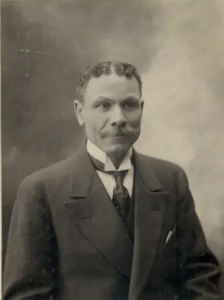
William Hunt
*On this date, in 1863, William Henry Hunt was born. He was a Black diplomat.
He was born in Tennessee, a mulatto. His father, William B. Hunt, was a white enslaver who fathered many children with his female slaves. His mother, Sophia Hunt, one of his father's slaves, had a white grandfather. Young Hunt had three older sisters, Elizabeth, Margaret, and Frances, and two younger brothers, John and Daniel. In addition to caring for her children, Sophia also cared for William B. Hunt's four older white children.
Hunt worked as a porter, handyman, and jockey until he decided to go back to school. Through several fortunate encounters, Hunt acquired a patron and was educated at Lawrence Academy in Massachusetts. He enrolled as one of three African American students at Williams College in Massachusetts in the 1880s. Hunt met Mifflin Wistar Gibbs, who hired him as an aide for his 1897 consular posting in Madagascar. During this time, he met his daughter Ida Alexander Gibbs around 1889. In 1904, they married.
Internationally, Hunt gained a high standing among the locals for his diplomatic engagement and athletic activities, mainly through establishing the sport of rugby in the town and running a rugby club. During World War I, he was responsible for the safety of American citizens and those of the Central Powers while the United States remained neutral. Hunt served at posts in France, Portugal, Guadeloupe, and Liberia, retiring in 1932.
Claude McKay refers in his novel Banjo (1929) to a "Negroid" consul working at an American consulate in a "town near Lyon," France (likely intended to refer to him). His later career included law and politics in Arkansas. William Henry Hunt, one of the few black people in the United States diplomatic corps (foreign service) during the 19th century, died on December 20, 1951.